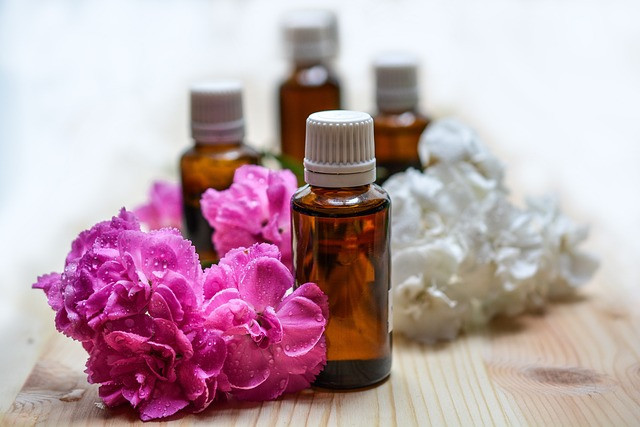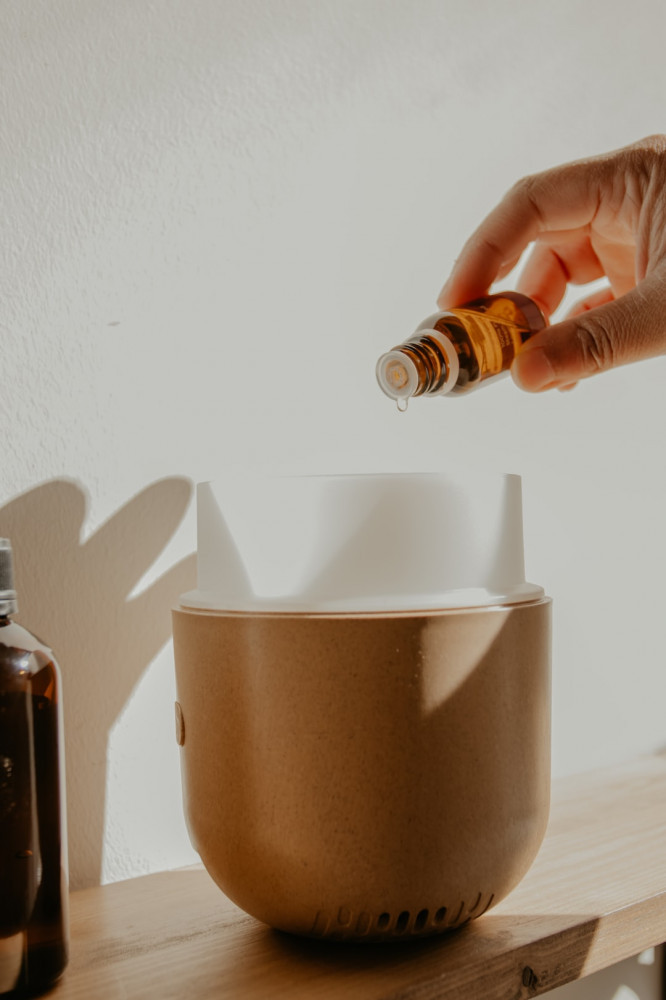
Essential oils can be safely used for babies, but it’s crucial to approach this with extreme caution. Babies have very delicate skin and sensitive systems, so using essential oils on them can sometimes lead to irritation or more serious problems.
In the gentle world of newborns and infants, where soft whispers become soothing lullabies and gentle caresses turn into a comforting embrace, every aspect of care becomes a delicate art. Among the myriad ways parents seek to nurture and comfort their little ones, the ancient practice of using essential oils is making a graceful return. These fragrant essences, extracted from the heart of flowers, herbs, and trees, carry within them properties that can both soothe and invigorate. But in the tender landscape of baby care, where everything is magnified in its effect, essential oils must be approached with knowledge, respect, and an understanding of their profound potency.
The careful integration of essential oils into a baby’s care routine can become an enriching experience, connecting the child with nature’s gentle touch. But this is not a journey to embark upon lightly. The path is laden with considerations of safety, appropriateness, and individual sensitivities. As you open the door to this fascinating world, you are not merely dabbling in pleasant fragrances; you are stepping into a realm where nature’s concentrated wisdom meets the exquisite simplicity of a child’s needs. Follow this path with caution and curiosity, and discover how essential oils can add a new dimension to the loving care of your precious little one.
Here’s a guide to help you navigate the use of essential oils with babies:
- Choose the Right Oils: Some essential oils are considered to be safer for babies, like lavender, chamomile, and dill. However, the composition and concentration of oils can vary between brands and products, so always choose high-quality oils that are specifically labeled as safe for infants.
- Dilute Properly: Essential oils must be diluted properly before use on babies. A common recommendation is to dilute the essential oil with a carrier oil like coconut oil or almond oil. For infants, a typical dilution might be one drop of essential oil to one tablespoon of carrier oil, but it is always best to consult with a healthcare provider or a certified aromatherapist who is trained in using essential oils with children.
- Avoid Certain Oils: Some oils, like peppermint, eucalyptus, and rosemary, are typically considered unsafe for young children, especially those under the age of 2.
- Avoid Certain Areas: Never apply essential oils to a baby’s face, especially near the eyes or mouth.
- Consult Healthcare Providers: Before using any essential oils on your baby, it would be wise to speak with a pediatrician, healthcare provider, or certified aromatherapist who has experience with infants. They can provide personalized recommendations based on your child’s specific needs and sensitivities.
- Avoid Internal Use: Essential oils should never be ingested by babies, and care should be taken to ensure they don’t get into the mouth.
- Monitor for Reactions: Even if you use an oil that is considered safe for babies, carefully watch for any signs of irritation or an allergic reaction, such as redness, rash, or difficulty breathing.
- Educate Yourself: If you decide to use essential oils on your baby, take the time to educate yourself about their proper use. There are many resources, including books and courses, that can provide in-depth information about using essential oils safely with children.
Remember, just because something is natural does not mean it’s safe, especially when it comes to infants. Always exercise extreme caution and consult with healthcare professionals when considering the use of essential oils with babies.

It’s crucial to emphasize that while some essential oils are typically considered safer for use with babies, they still need to be used with great care, proper dilution, and under the guidance of a healthcare provider or aromatherapist trained in pediatrics.
That said, here are some essential oils that are often cited as being more suitable for use with babies:
- Lavender: Known for its calming properties, lavender is often used to help soothe a fussy baby or aid in sleep.
- Chamomile: Both Roman and German chamomile are known for their gentle and calming effects and can be used to ease colic or digestive issues.
- Dill: This oil can be used to help soothe digestive troubles in babies, such as gas or upset stomach.
- Mandarin: This citrus oil is typically considered gentle enough for children and can be used to uplift mood.
- Frankincense: Used in moderation and with proper dilution, frankincense can have calming and grounding effects.
- Ylang Ylang: Known for its mild and pleasing scent, ylang ylang can be used to calm and relax.
- Tea Tree: Sometimes used for antiseptic purposes, such as treating diaper rash, tea tree oil should be used with extreme caution and proper dilution.
- Sandalwood: This oil may be used for its calming and soothing effects on the mind.
Remember, these oils should always be used in a diluted form with an appropriate carrier oil, like coconut or almond oil. Babies have highly sensitive skin, and the improper use of essential oils can cause irritation or allergic reactions. It is best to consult with a healthcare provider or certified aromatherapist who is trained in using essential oils with children to ensure that the oils are suitable for your baby’s specific needs and age. Even oils that are typically considered safe can cause reactions in some individuals, so careful observation and caution are always advised.
Essential Oils as Diffuser for Babies
Using essential oils in a diffuser can create a pleasant atmosphere in your home and offer various therapeutic benefits. However, it’s important to remember that not all essential oils are suitable for everyone, especially if there are babies, children, pregnant women, or pets in the home. Here’s a list of commonly used essential oils that are generally considered good for diffusing:
- Lavender: Known for its calming and relaxing properties, it’s great for stress relief and promoting sleep.
- Lemon: A fresh and uplifting oil that can help improve mood and create a clean, energizing environment.
- Peppermint: Energizing and refreshing, peppermint can improve focus and concentration.
- Tea Tree: Known for its purifying properties, tea tree oil can help cleanse the air.
- Eucalyptus: Often used for respiratory support, eucalyptus can be invigorating and refreshing.
- Frankincense: A grounding oil, frankincense can promote a sense of peace and relaxation.
- Rosemary: This can be used to enhance memory and concentration.
- Chamomile: With calming effects, chamomile is good for relaxation and stress reduction.
- Ylang Ylang: This floral oil is known for its ability to reduce stress and create a calming atmosphere.
- Grapefruit: A bright and uplifting oil, grapefruit can elevate mood and create a cheerful environment.
- Bergamot: This citrusy oil can help relieve stress and add a refreshing scent to the room.
- Jasmine: Known for its romantic and calming effects, jasmine can create a soothing environment.
When using essential oils in a diffuser, especially around babies, children, or pets, be sure to use oils that are suitable for them and always diffuse in a well-ventilated area. If you have specific health concerns or conditions, consult with a healthcare provider or certified aromatherapist to ensure that the essential oils you choose are appropriate for your situation. Some essential oils can be irritating to the respiratory system or have other side effects, so it’s important to use them with caution and awareness of the individual needs and sensitivities of those in your home.




